Public Consultation on the Preparation of the Urgent Draft of BAPETEN Regulation on Decommissioning of Radiation Facilities
Kembali 31 Juli 2024 | Berita BAPETEN | 833 lihatThe Nuclear Energy Regulatory Agency (BAPETEN), through the Directorate of Regulation of Radiation Facilities and Radioactive Materials (DP2FRZR), held a public consultation in order to prepare the urgent draft of BAPETEN Regulation in lieu of the Decree of the BAPETEN Chairman No. 07-P/Ka-Bapeten/I-02 concerning Guidelines for Decommissioning of Medical, Industrial, and Research Facilities and Non-Reactor Nuclear Installations on Wednesday, July 31, 2024. This activity was held to obtain initial input from business actors and other stakeholders regarding the preparation of the draft legislation.
This activity was attended by 24 agencies that were invited to attend offline and 34 agencies that were invited to attend online. Invitations were sent to business actors in hospitals, several professional associations, including the Indonesian Dermatologist and Venereologist Association (PDSRI), the Indonesian Radiographer Association (PARI), the Indonesian Medical Physicists Alliance (AFISMI), and academics, including the Health Polytechnic of the Ministry of Health Semarang, Diponegoro University (UNDIP), Sebelas Maret University (UNS), Gadjah Mada University (UGM), and the Indonesian Nuclear Technology Polytechnic.
Director of DP2FRZR BAPETEN, Mukhlisin, in his opening remarks, said that currently BAPETEN will draft revised regulations for the decommissioning of medical facilities, research, industry, and non-reactor nuclear installations. For this reason, the drafting team conducted a public consultation aimed at listening to opinions and input and discussing directly with stakeholders.
It should be noted that this decommissioning is a process where ionizing radiation source facilities will stop activities. This decommissioning is the final stage to ensure that the radiation facilities that will be closed or converted have met the standards so that they do not contaminate the community and the environment. This decommissioning is a licensing stage that requires gradual licensing, including radioisotope and radiopharmaceutical production activities, radiotherapy, nuclear medicine, etc.
Furthermore, the presentation guided by Nanang Triagung Edi Hermawan began with a presentation of policies in the Nuclear Energy Bill (RUU), which is currently in the process of being drafted. This presentation was delivered by the Director of DP2FRZR, covering several important topics in the Nuclear Energy Bill, including health, safety, and security issues; changes to the Nuclear Energy Bill; the main regulations; and authorization regulations. This health issue is related to the target of the Ministry of Health to strengthen radiodiagnostic facilities, nuclear medicine, and radiotherapy by including the fulfillment of cath labs in 207 regencies/cities in 34 provinces. This is certainly related to BAPETEN Supervision, which authorizes the use of equipment that emits ionizing radiation. In addition, Indonesia's commitment to climate change mitigation makes nuclear power plants a more environmentally friendly alternative energy option. Authorization arrangements that will be made in a tiered or graded approach are also an important issue that will be closely related to business actors.
Then, the second presentation from Soegeng Rahardhy as the lead of the BAPETEN Draft Regulation (Raperba) drafting team conveyed the draft of the urgent text that had been prepared in the context of revising SK 07-P/Ka. Bapeten/I-02. He conveyed the background of the revision, the results of the questionnaire, the agenda for the preparation, and the follow-up plan that will be carried out. The background to the revision includes the development of science and technology, adjustments to international standards, and harmonization with other laws and regulations (PUU). This draft regulation will contain several important points regarding decommissioning planning, management of decommissioning waste, implementation of decommissioning, and reporting.
The third presentation was regarding the development of the revision of Government Regulation (PP) No. 5 of 2021 on the Implementation of Risk-Based Business Licensing by Vatimah Zahrwati, team leader in the preparation of the revision of PP 5/2021 for the Nuclear Energy sector. In her presentation, Vatimah conveyed several fundamental changes to the revision that was made. In addition to perfecting the formulation of the regulations, this change also aims to simplify the formulation of provisions so that it is easier for business actors to understand and comply with these provisions. Some of the changes include simplifying the number of required documents, the formulation of the body, and the format of attachments.
The issue of financial guarantee requirements related to decommissioning activities is an important issue and has attracted comments from participants. Among them are how this financial guarantee will be fulfilled and the form and amount that must be fulfilled by business actors. It was emphasized that this is a step taken to anticipate business actors who, at the end of the utilization process, are unable to carry out decommissioning, including the management of their radioactive waste. This inability is anticipated by the existence of financial guarantees that can later finance decommissioning activities in the event that business actors are unable to do so at the end of the nuclear energy utilization process. However, the formulation of this financial guarantee regulation will be formulated in the BAPETEN Regulation.
Discussion regarding the option to be able to send unused packaged radioactive materials, or DSRS (Disused Sealed Radioactive Sources), to the National Research and Innovation Agency—Radioactive Waste Management Installation (IPLR-BRIN) became interesting because business actors saw a significant difference in costs compared to returning to the country of origin. However, the Director of DP2FRZR said that the option of returning to the country of origin was the main choice to avoid the burden of managing radioactive waste domestically, which of course would later provide freedom for future generations.
In the discussion, several things were proposed by the participants, including provisions on vendors who can carry out this decommissioning activity. Currently, vendors specifically for carrying out decommissioning activities are still not available, including their permits. In addition, it is hoped that there will be a benchmark for decommissioning prices, which is also one of the proposals from business actors. Input and suggestions submitted by participants will be processed and discussed again by the drafting team to then be reviewed as to whether legally and regulatory it can be accommodated in the Raperba or formulated in the form of guidelines. [DP2FRZR/VZ/BHKK/GP]


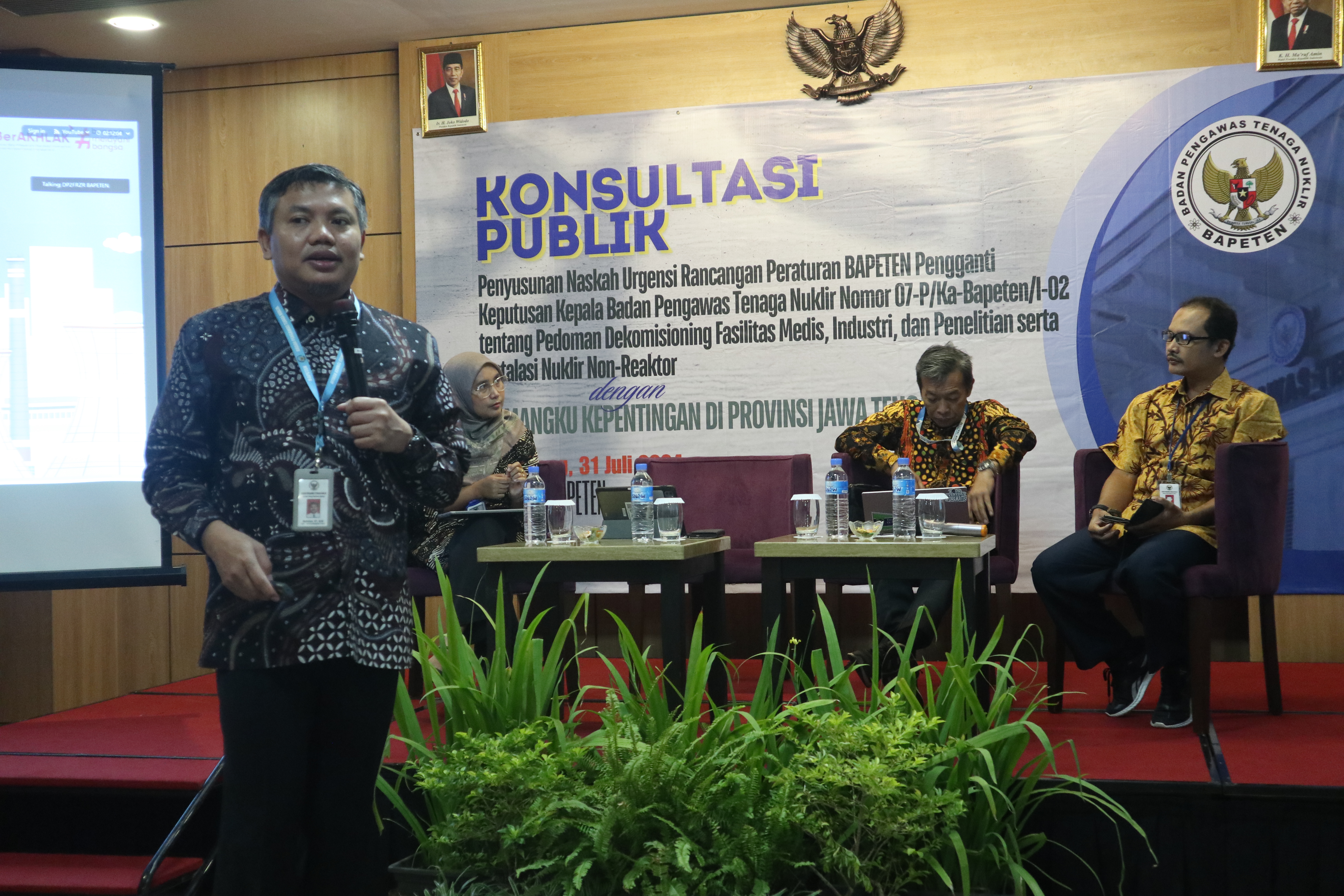
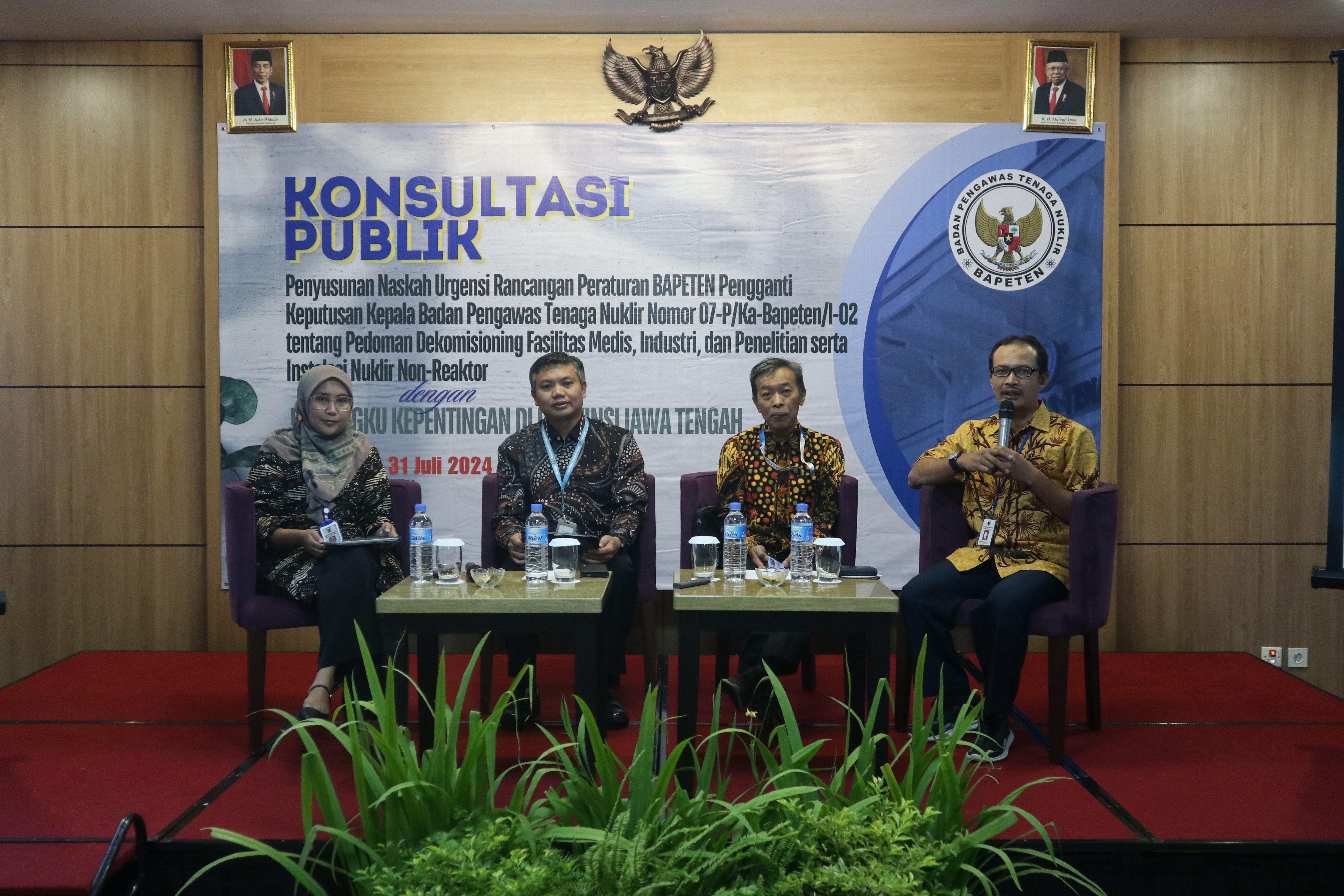
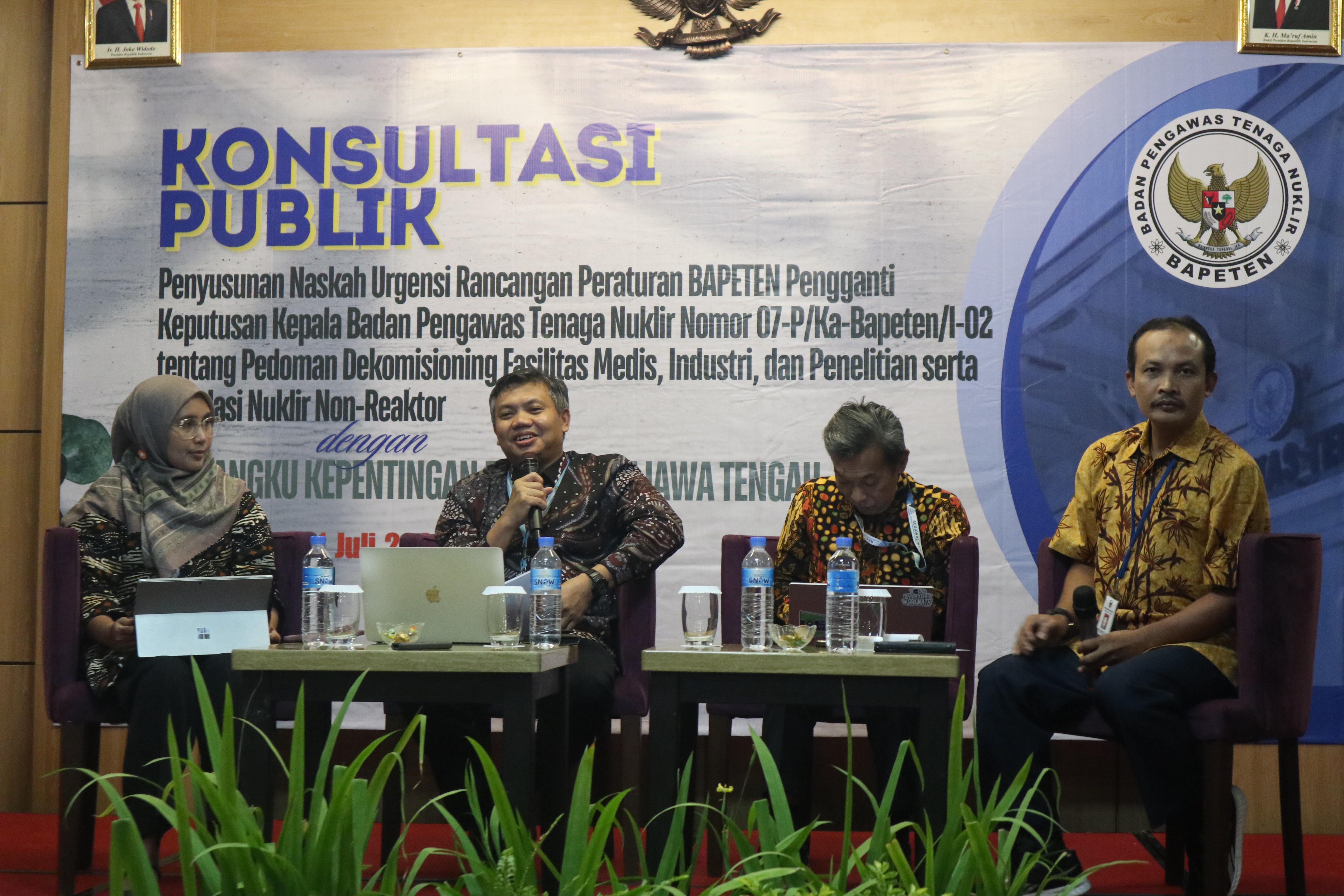
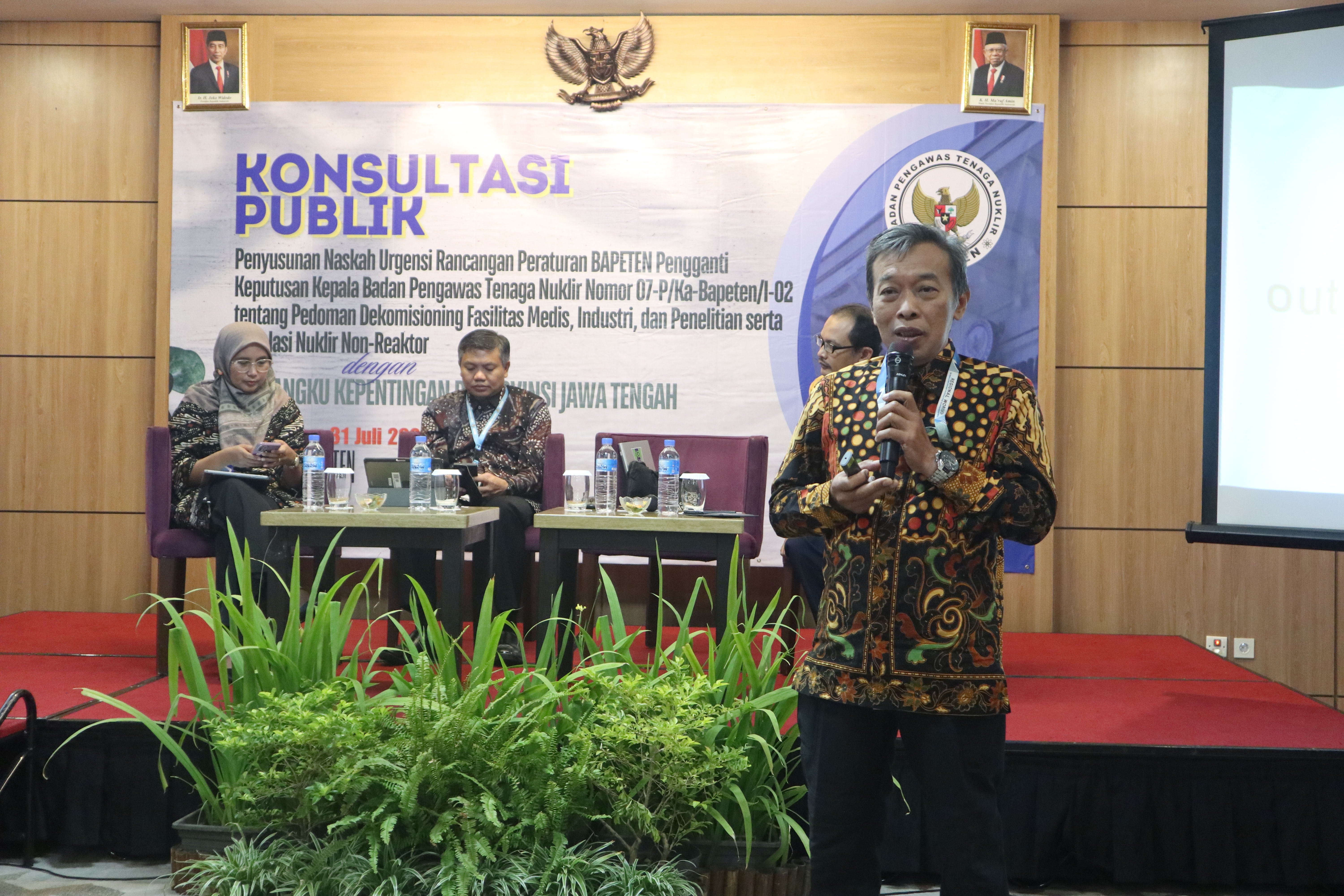
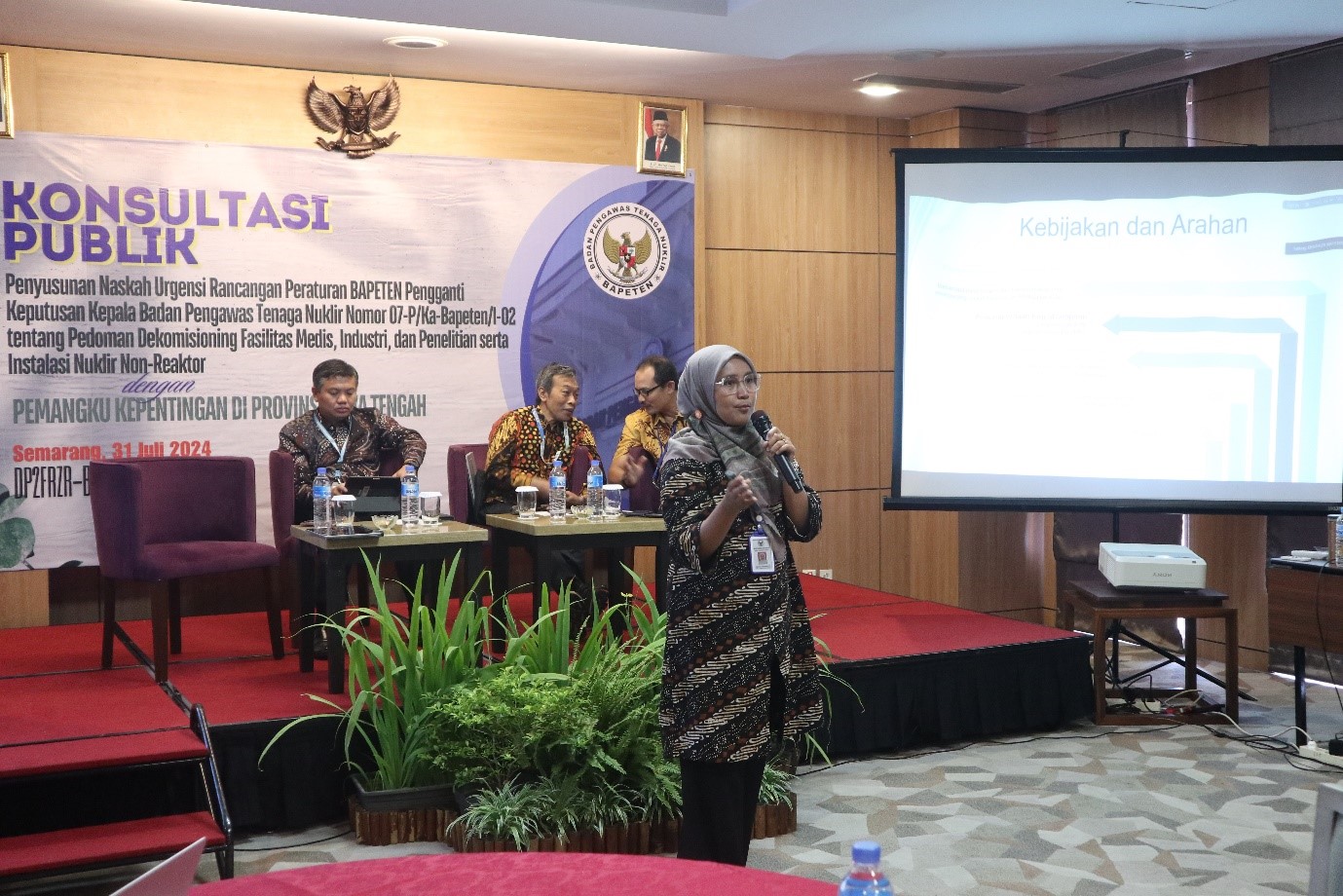
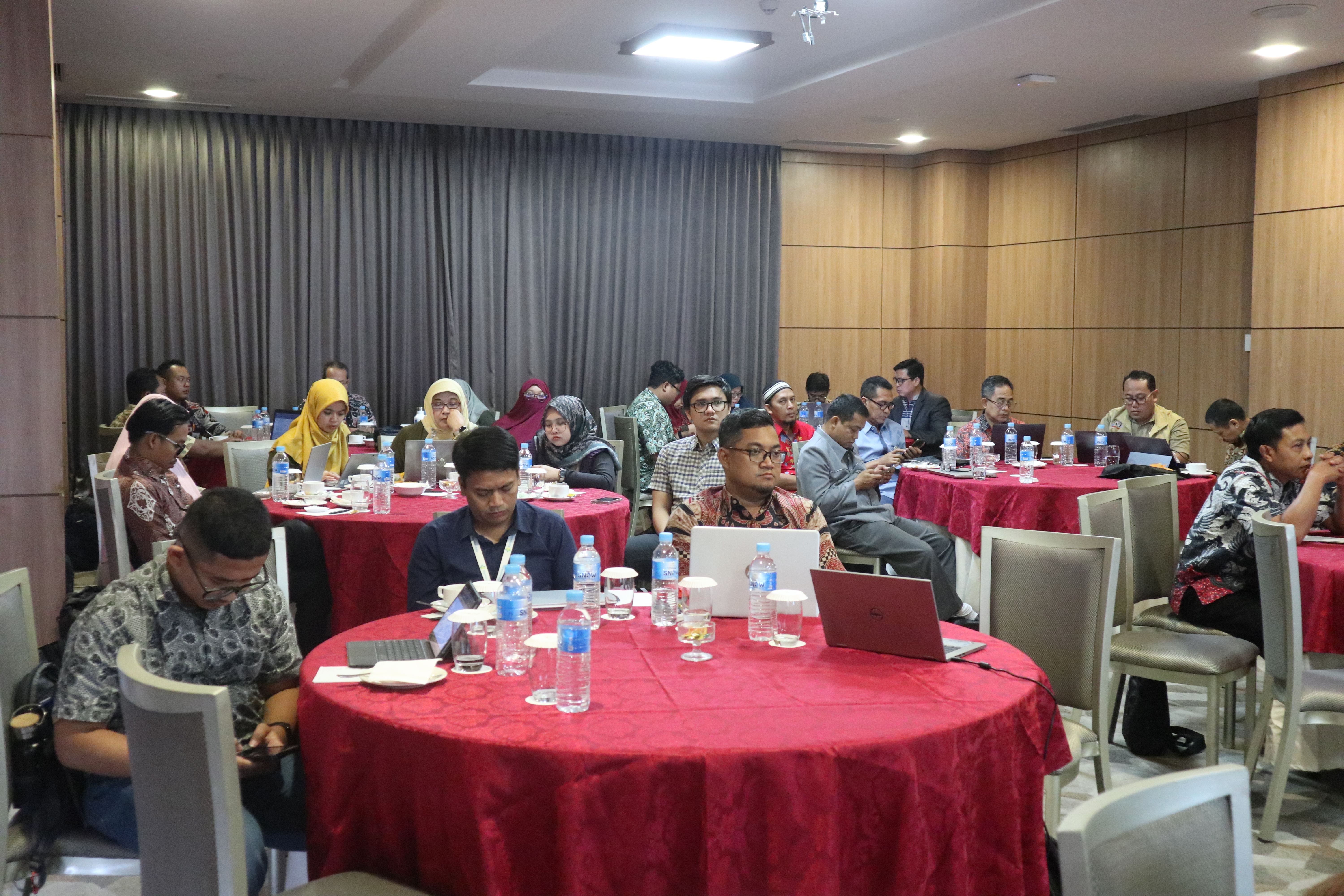
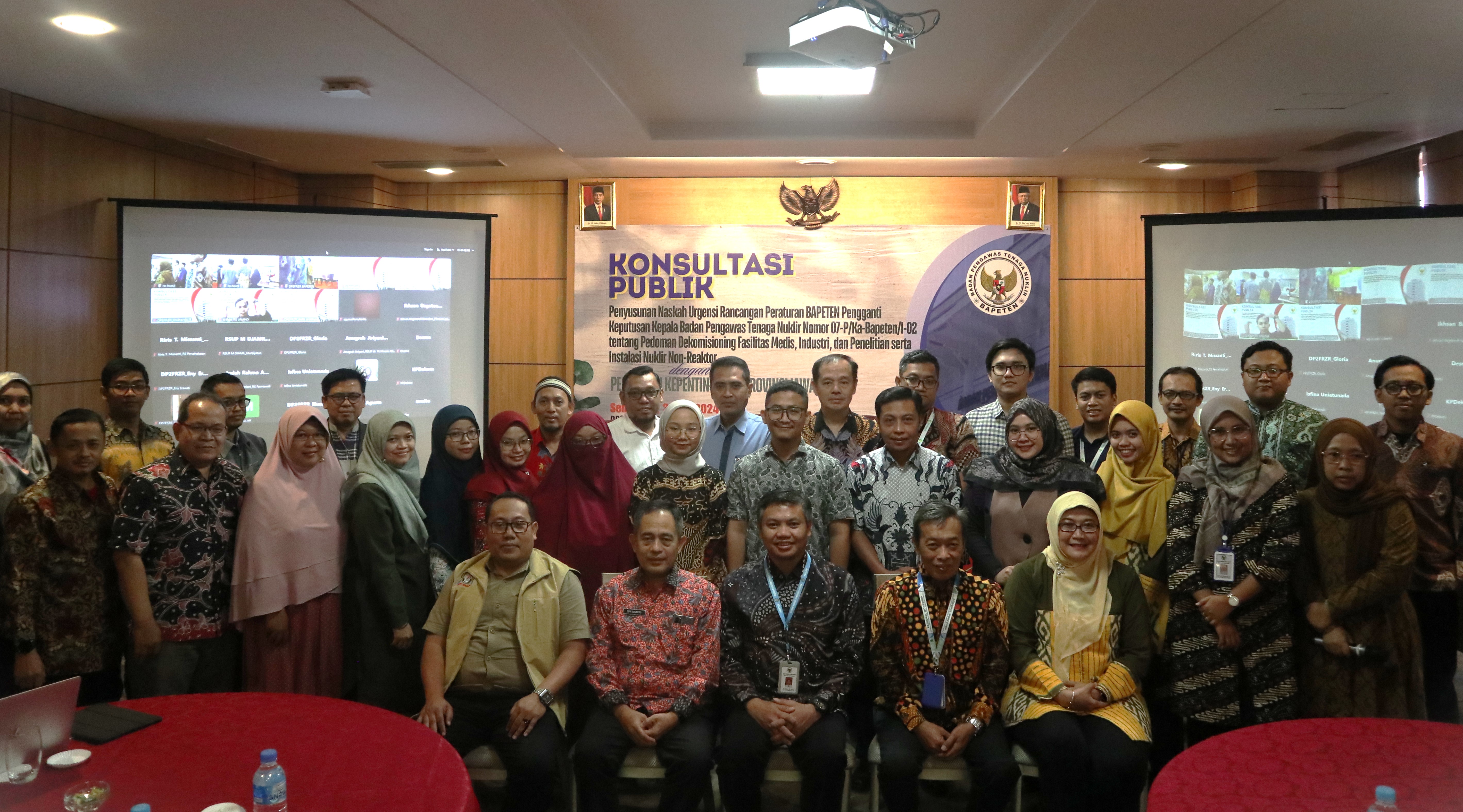


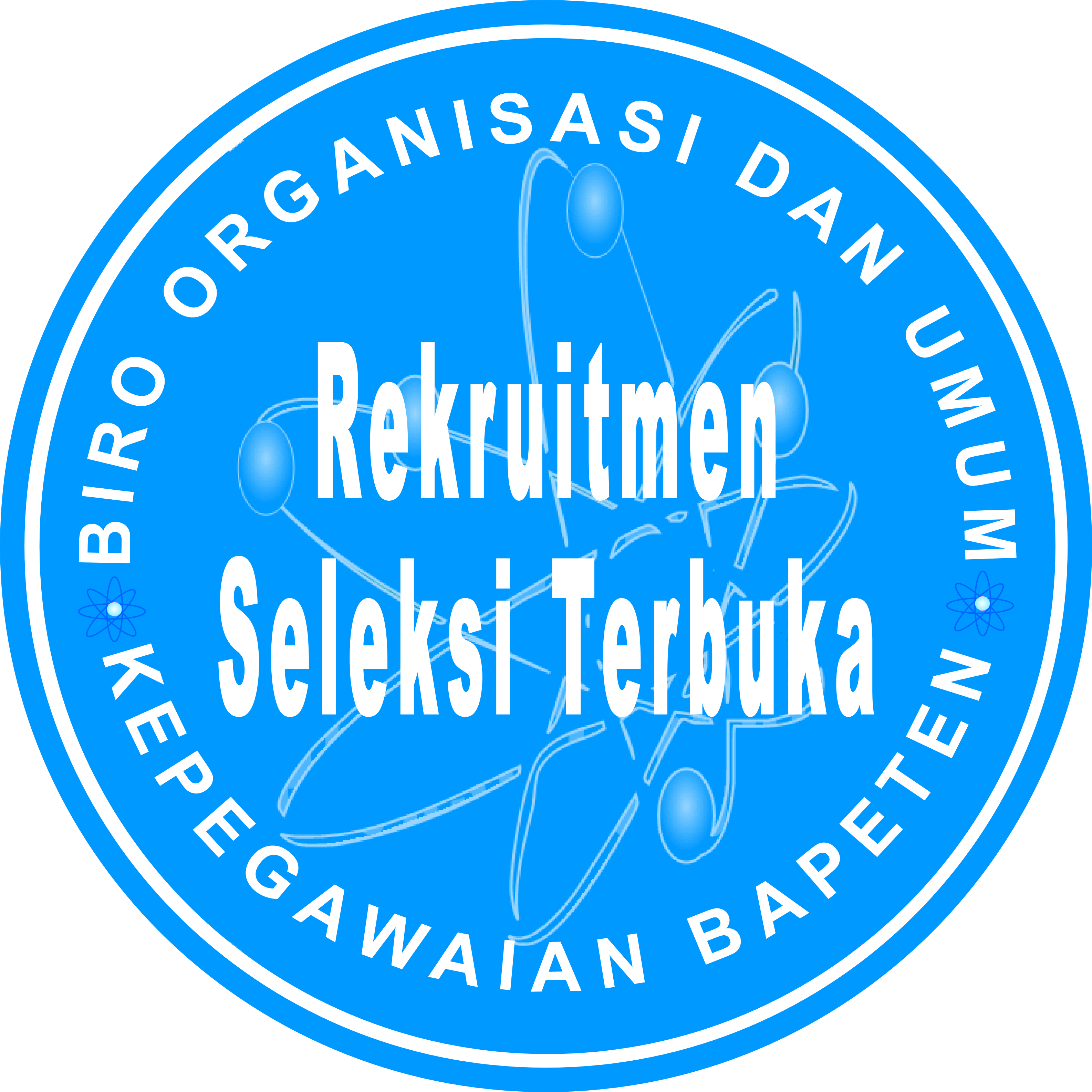

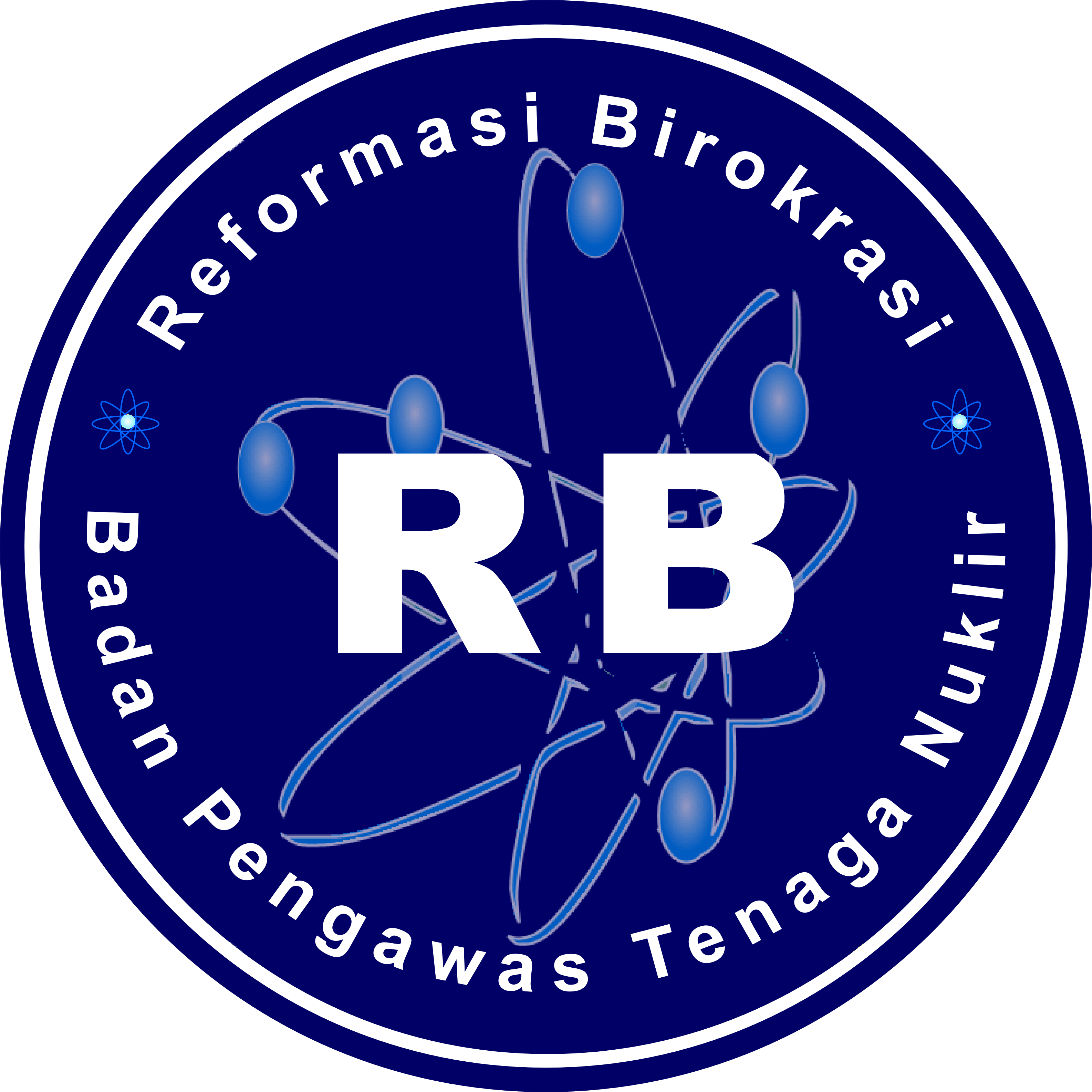
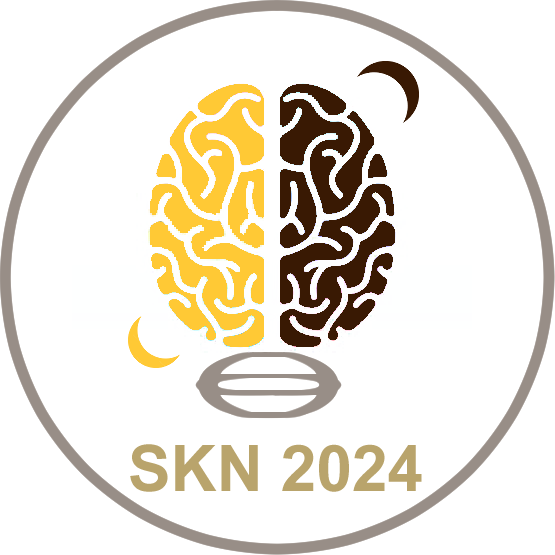
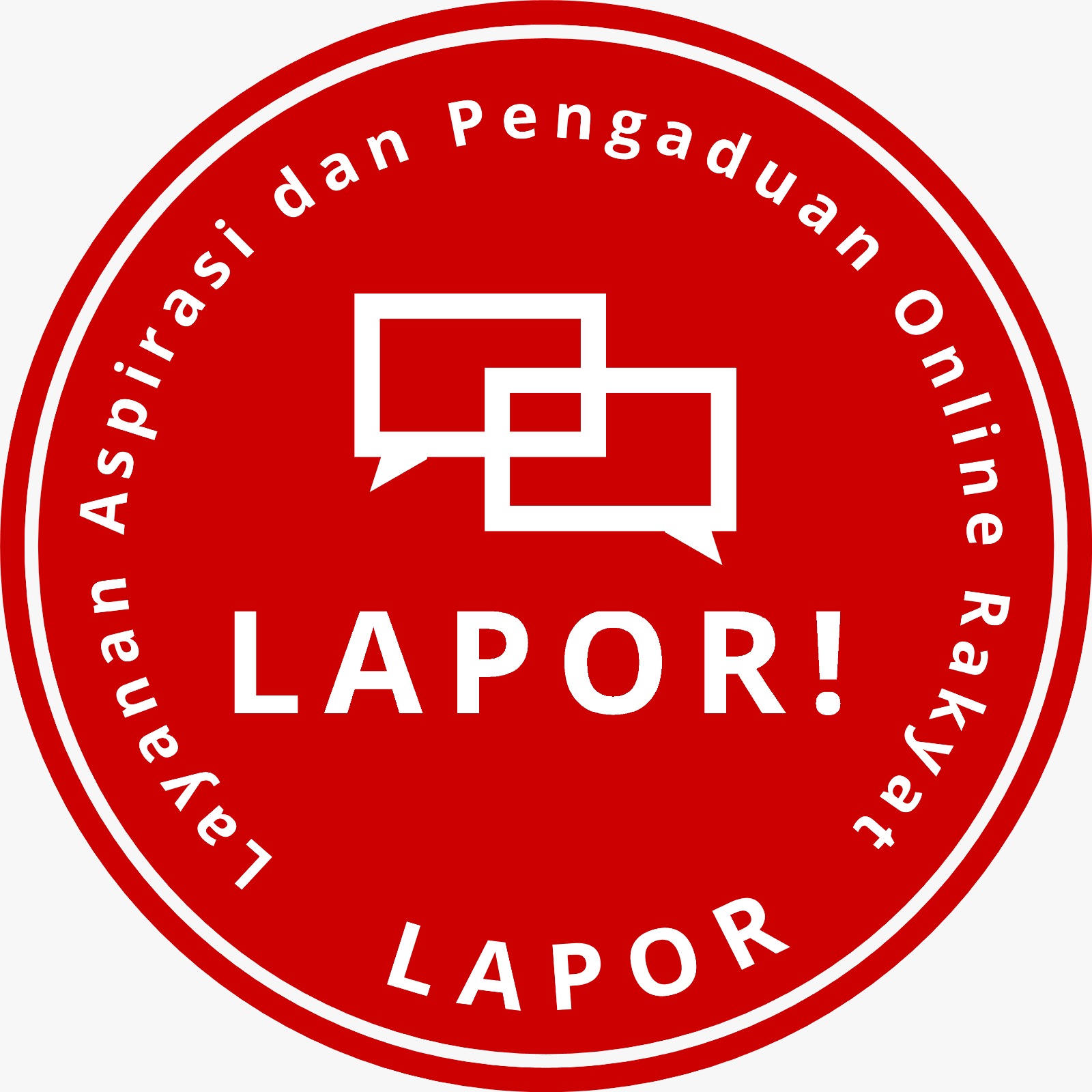









Komentar (0)